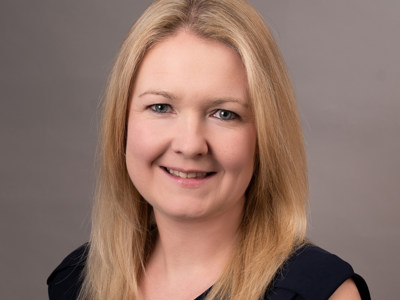
The importance of documenting Group B Streptococcus in a pregnant woman’s medical notes
Leigh Day lawyers Emmalene Bushnell and Kriya Hurley, who act for mothers in claims arising out of Group B Streptococcus affecting both mothers and babies, explain the importance of making a clear note of the presence of Group B Streptococcus in pregnant women
Posted on 09 July 2024
Group B Streptococcus (GBS) is a normally occurring bacterium. Between 20 to 30 per cent of women carry GBS in their intestines without symptoms and around 25 per cent of women of childbearing age carry GBS in the vagina. These bacteria can sometimes be passed to the baby during delivery.
For pregnant women whose babies are considered to be at an increased risk of developing GBS infection, antibiotics are given as soon as possible following the onset of labour.
Most babies who become infected with GBS can be treated successfully and make a full recovery. However, even with the best medical care, GBS infection can cause life-threatening complications and can present serious health risks to newborns if the infection is transmitted during delivery.
Recently Emmalene and Kriya represented Mrs A in her medical negligence claim which included a failure to write in her notes that she was GBS positive (as GBS bacteria was present in her urine). The GBS bacteria led to injuries to both Mrs A and her baby during labour and following delivery because antibiotics were not given to Mrs A during labour.
The case highlighted the importance of healthcare providers appropriately documenting GBS status in pregnant women. This is particularly the case when antenatal care is provided by more than one hospital or when microbiology testing is outsourced from the hospital, creating a risk that the information could be missed.
In this case Mrs A had not been told about her positive test for GBS. If she had known about the GBS risk, even if it hadn’t been documented in her notes, she would have been able to pass on the information to her medical team at the hospital and they could have started antibiotic therapy before her baby was delivered.
It is essential for healthcare providers to meticulously document any presence of GBS during antenatal care and inform the pregnant woman of her positive GBS test result promptly. Appropriate and accurate documentation on electronic and handwritten medical notes ensures that all medical professionals are aware of the condition, allowing them to take the necessary steps to manage it effectively.
Informing pregnant women about their GBS status is crucial for a variety of reasons:
- It allows healthcare providers to take appropriate preventative measures, such as giving IV antibiotics during labour, which significantly reduces the risk of GBS transmission to the newborn baby.
- Informing the expectant mother about her GBS status helps her to understand the importance of these measures and to stick with the recommended birth plan.
- Education about GBS can help reduce any anxiety expectant mothers feel about labour by providing clear information on how the condition is managed and empowering them to take an active role in their healthcare decisions.
The Royal College of Obstetricians and Gynaecologists (RCOG), alongside the charity Group B Strep Support (GBSS) jointly produced a leaflet to be given to all pregnant women as part of their routine antenatal care. The leaflet aims to ensure that all pregnant women are provided with high quality information and informed about the potential risks of GBS and how to minimise the risk of infection in their baby. We would advise all pregnant women to read this leaflet so they are informed about GBS in the event that GBS is confirmed during their pregnancy.
Despite most developed countries routinely offering all pregnant women screening of GBS carriage, currently in the UK, the NHS does not routinely offer all pregnant women screening for GBS. However, testing for GBS in women during pregnancy is available privately at a cost of approximately £35-£40.
The charity Group B Strep Support (gbss.org.uk) provides potentially life-saving information regarding GBS.




